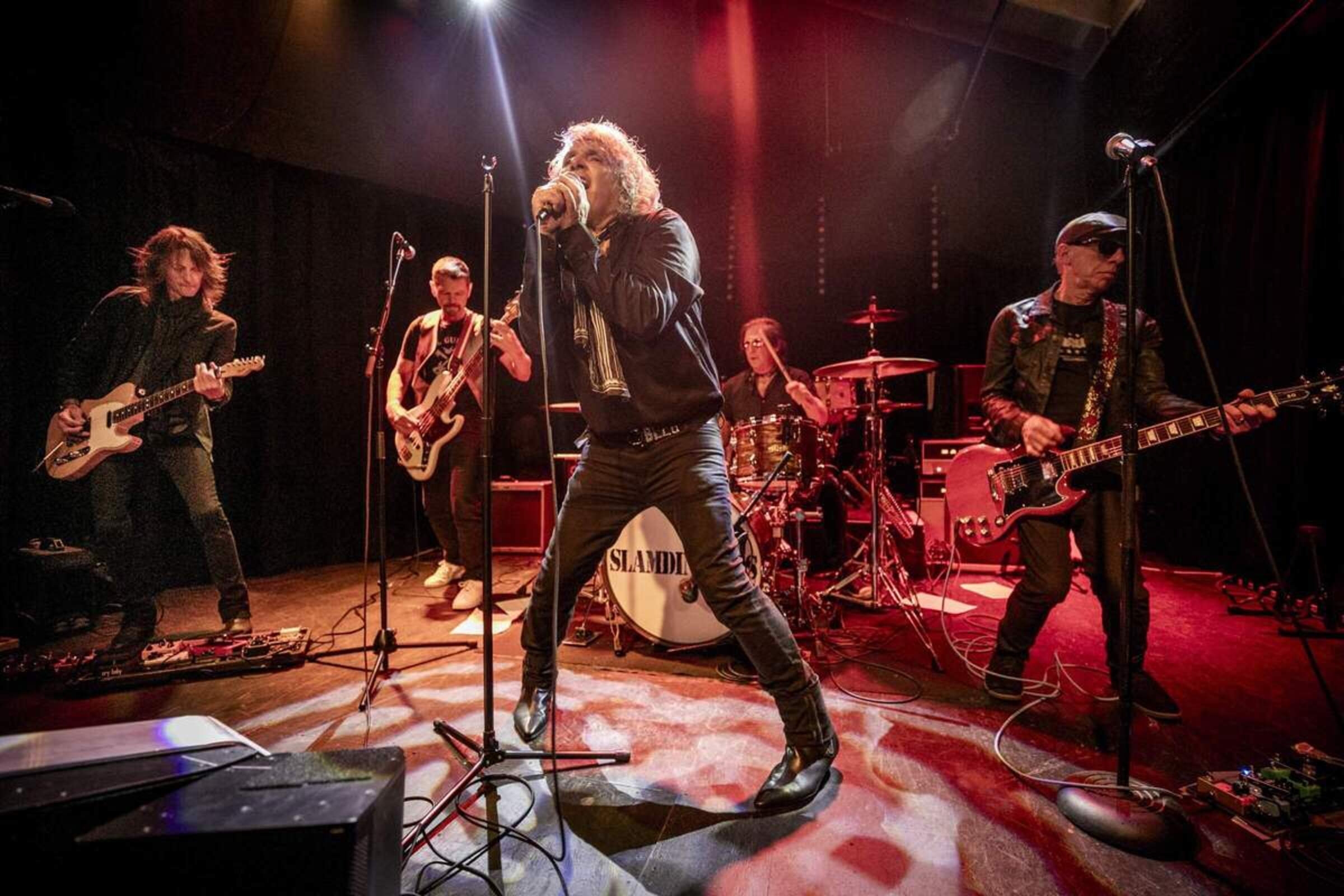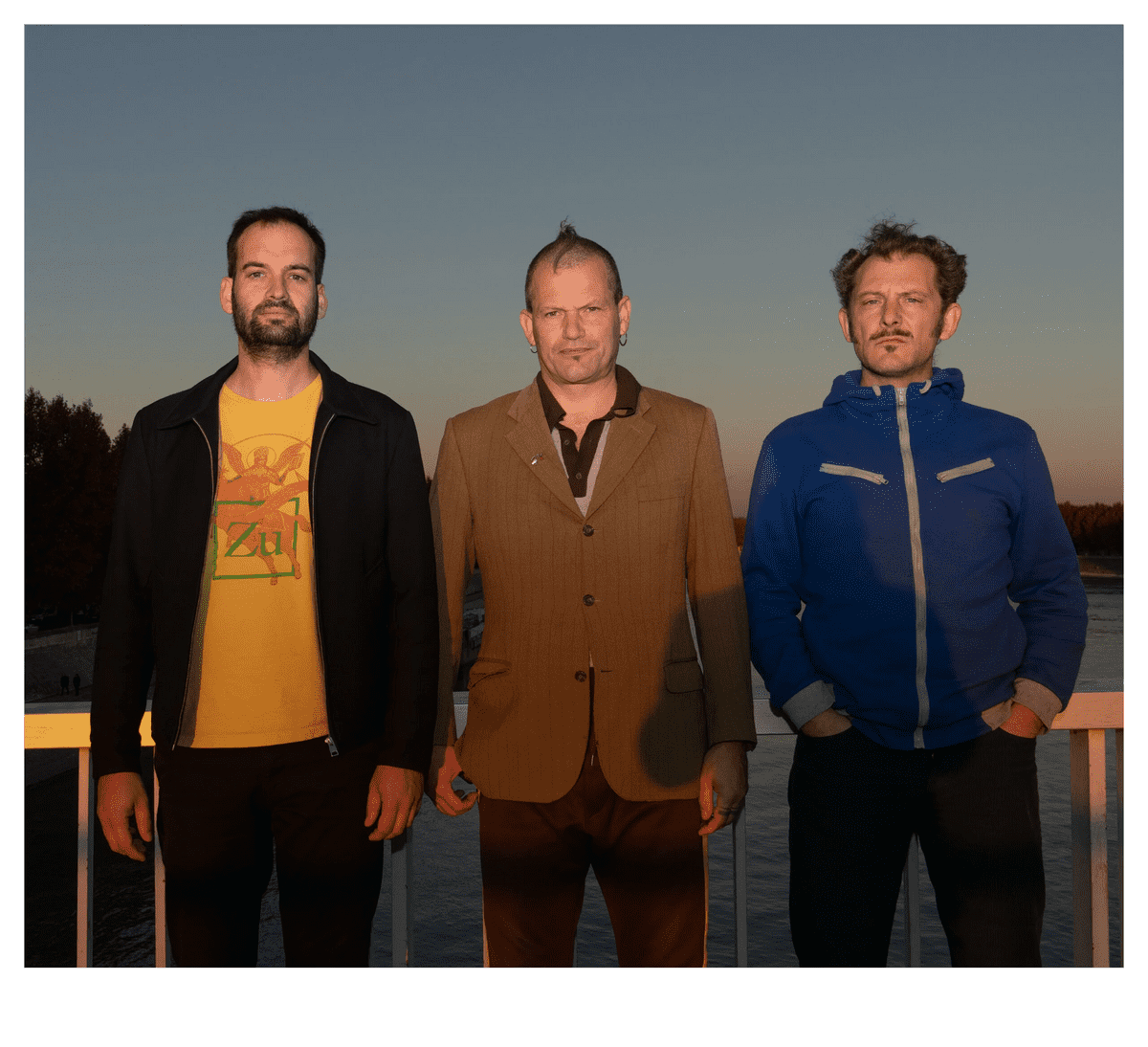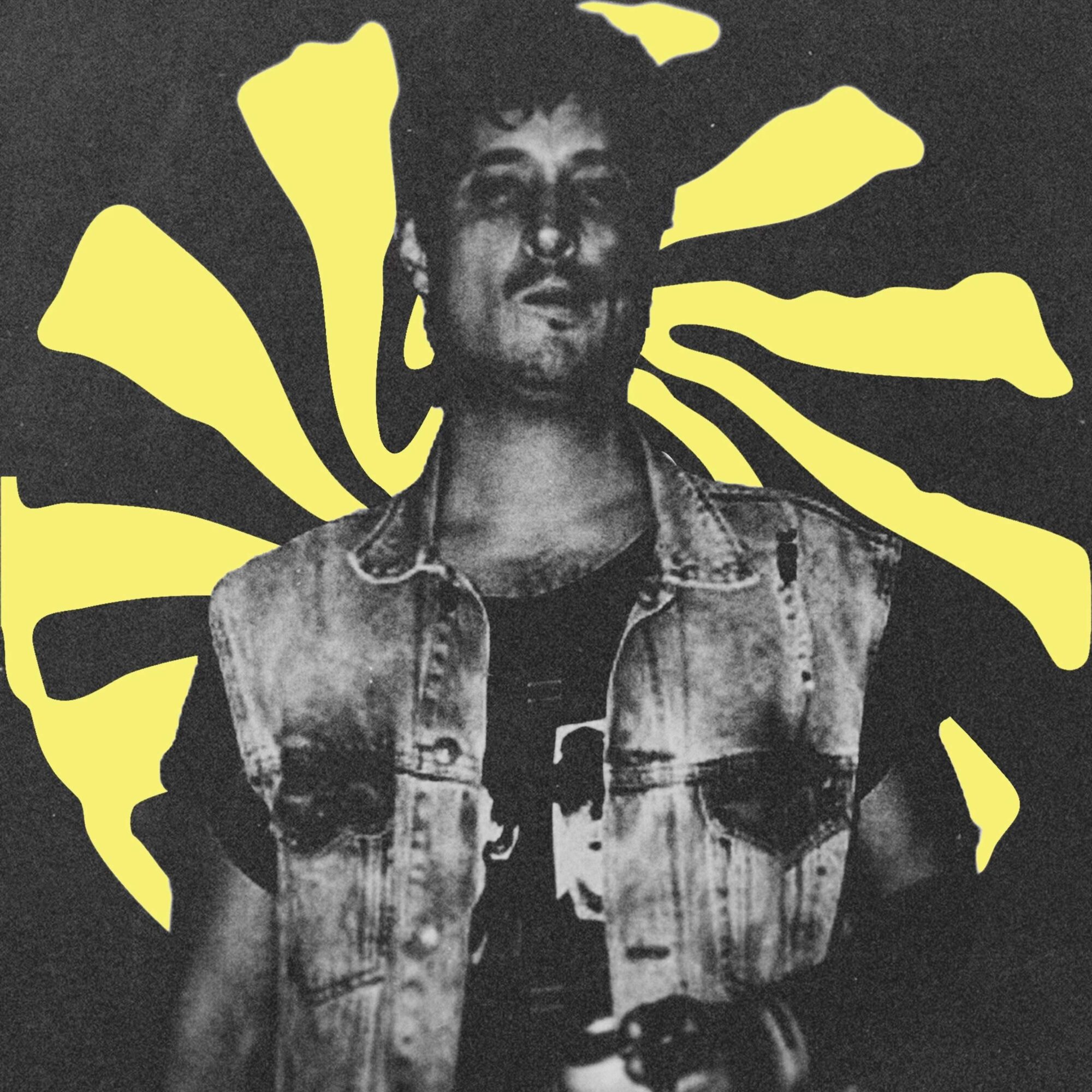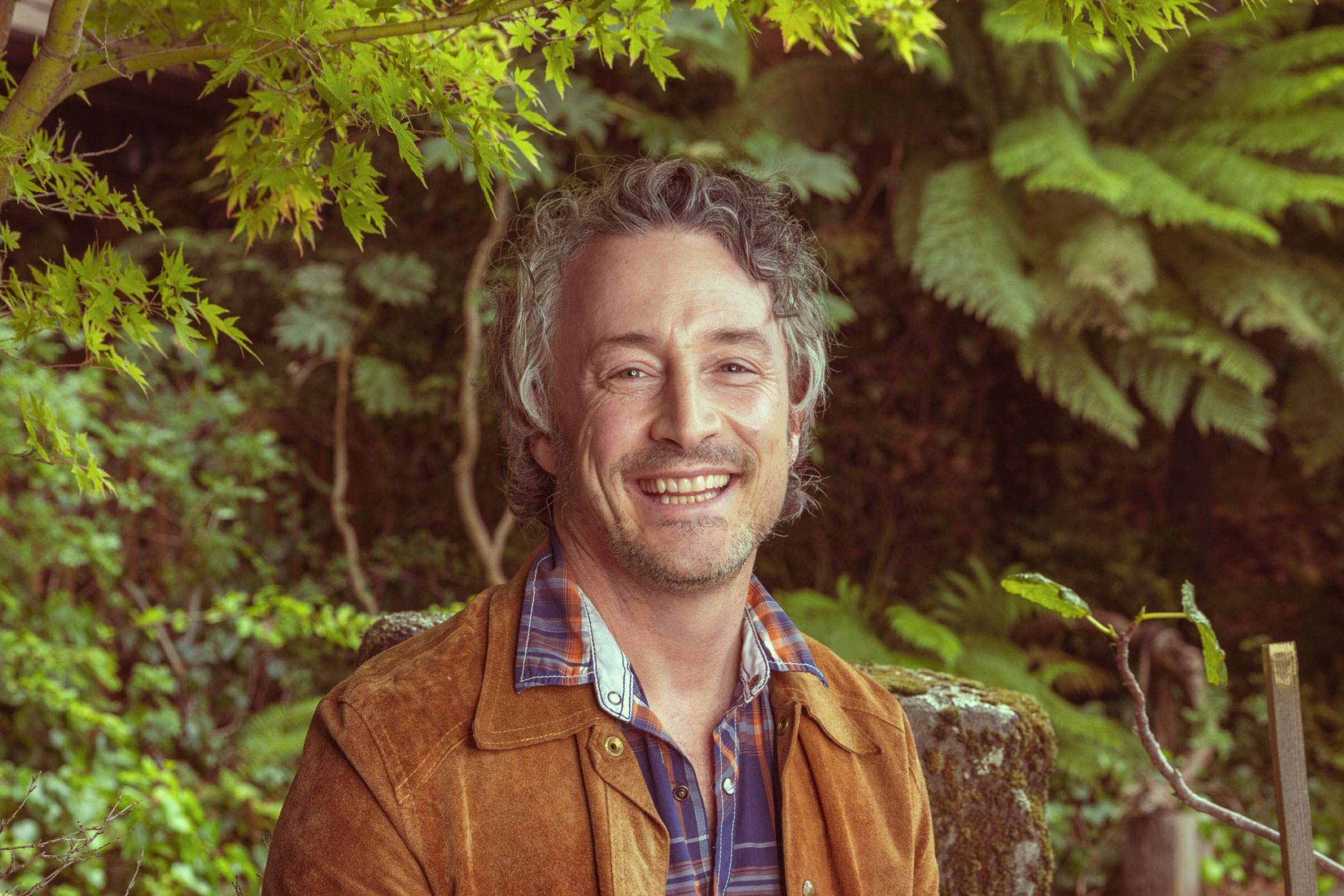Inside the Slamdinistas’ ‘Wild & Restless’
“This music is rebellion, emotion, connection.” Slamdinistas’ new album ‘Wild & Restless’ delivers a real rock and roll punch, the kind you feel in your chest before it hits your ears.
This band didn’t just fall together overnight. It’s more like a slow-burning fuse finally hitting the dynamite. Drummer Brian Irving met guitarist Loren Molinare (The Dogs, Cruzados, Little Caesar) during a stint in Glitter Trash. Then came singer/guitarist Gabriel Johns, a powerhouse voice shaped by years in bands like Shelter and FiDo. Add in Peter Downing — a bassist who’s done time with the Adam Sandler Band and the Jail Guitar Doors project — and finally guitarist Mike Gavigan from The Blessings. These guys have played with everyone from Gilby Clarke to Chris Spedding to Pat Todd, but together they hit a different kind of spark.
‘Wild & Restless’ is rougher, looser, and more wired than their debut ‘Shoot for the Stars,’ which was born in the weird stillness of lockdown. This one feels like the doors are flung wide open and they’re running straight through. Tracks like ‘Oh Yeah’ (co-written by Molinare, but made fire and brimstone by Johns) and ‘Latch Key Kids’ bring that sweaty, late-night club energy …
Peter’s work with incarcerated musicians through Jail Guitar Doors seeps into the lyrics, giving the whole record a conscience. Nothing preachy… just real-world bruises and flashes of hope.
The name Slamdinistas says it all. Slammin’ rock and roll. Street-smart conviction. Guerrilla soul. As Molinare puts it, it’s a nod to The Clash, to anarchy, to making noise with purpose.
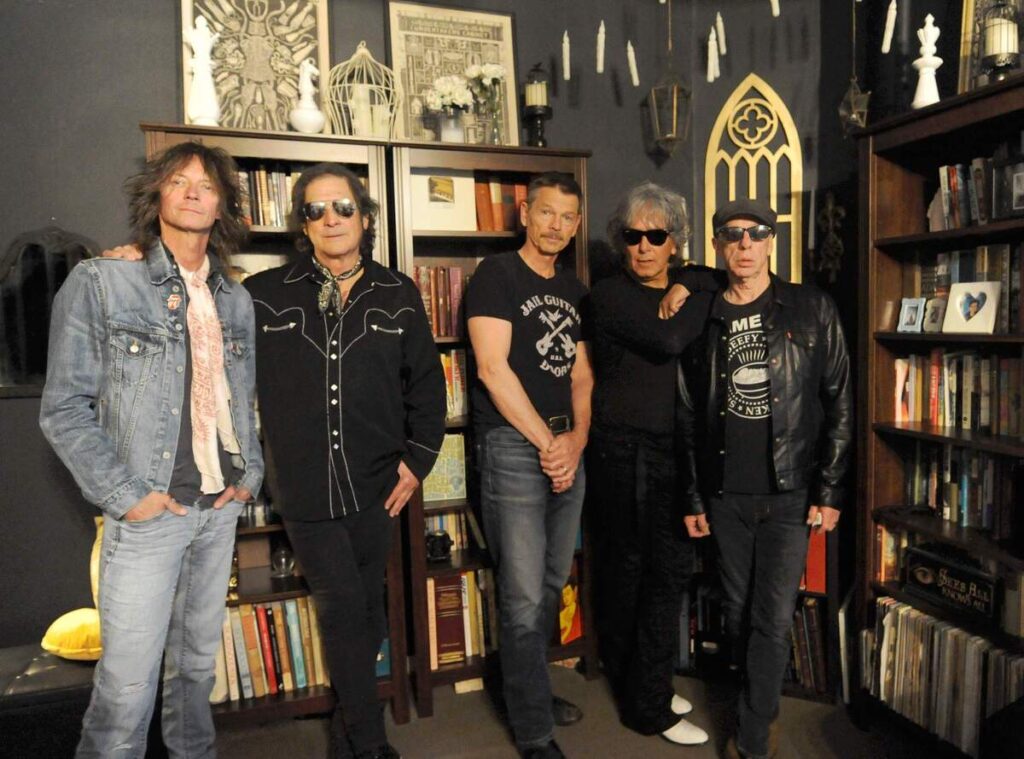
“This music is rebellion, emotion, connection.”
This new record, ‘Wild & Restless’—is that just where you’re all at right now, or has that always kinda been the vibe with this band? Feels like it could describe a lifetime, not just an album.
Gabriel Johns: As a band, we respect each other’s interests in various players and songwriters, and we usually share those interests. We didn’t grow up together, but we did share the same teenage angst, and we listened to the same bands. There’s a lot of magic that comes from us playing together. We mesh. As evident in our first album, ‘Shoot for the Stars,’ up to our latest, ‘Wild and Restless.’
You guys have so much history between you. I mean, Dogs, Cruzados, Gilby Clarke, Chris Spedding, Adam Sandler’s band. Do you ever stop and go, “Damn, how the hell did we all end up in this band together?”
Brian Irving: My path to the Slamdinistas started with Loren Molinare. Divine intervention placed us on the same bill one night several years ago. Loren approached me in the venue’s hallway after I’d finished a set and said, “Hey man, we’ve gotta play together sometime!” I knew who he was and said, “Sure!” It took two or three years, but he eventually got a hold of me and said, “I’ve got a hard rocking punk thang that you would be perfect for.” That new band was Glitter Trash. Loren and I bonded in the rock ‘n’ roll trenches by developing new songs and playing together, which led to two videos and many live performances across California and, eventually, to the main stage at the Rebellion Punk Festival in Blackpool, England.
Because of that experience of working and traveling together—through good times and challenging times—Loren reached out to me later to record drums for a Gabriel Johns solo record that he was producing. The Gabriel Johns pre-production work went so well that the three of us—Loren, Gabe, and me—became a songwriting and development team.
Just after that, Loren called me to help with another of his bands, Little Caesar. They had a European tour coming up and their regular drummer wasn’t available. I did that tour with Loren, which bonded us even more.
So, my path to Slamdinistas was a gradual arc based on hard work and dedication. Loren was the first to sense that what he, Gabriel, and I had going on was pretty special, so he presented the idea of us forming an actual band instead of putting out our sessions as Gabriel’s second solo album. Loren invited Paul Ill in to record the bass parts; they had worked together in Michael Des Barres & The Mistakes. Next came guitarist Michael Gavigan from The Blessings. Everybody gelled beautifully. Now we just needed a name…
Gabriel’s voice on this one, it sounds like he’s lived every word. Was that something you were going for, or did it just come out like that when you hit record?
Loren Molinare: It’s true that Gabriel’s life and musical experiences helped form the bedrock of ‘Wild & Restless.’ If you look at singers like Frank Sinatra or Iggy Pop or Mick Jagger, they are soulful storytellers who express personal feelings in an emotional way. I brought a song called ‘Oh Yeah’ into the sessions that I had co-written with Texas Terri back in the 1990s. Gabriel took her lyrics to heart and made the song his own.
Gabriel and I talked a lot about his lyrics and the songs on this album. These songs forced him to be expressive and to sing them with conviction. He channeled real emotion and was able to capture them in the moment.
There’s this killer balance on the album, tight, but still a little messy in the best way. How do you keep that looseness without it falling apart? Does it come down to trusting each other?
Mike Gavigan: That’s a great way to describe the balance and feel of the album! Absolutely, it all comes down to trusting each other. That level of trust isn’t unique to this band, but it is a thing that is consistent with us. Why? Because you have five musicians with similar musical backgrounds and taste, a great work ethic, and we’re players of equal strength with years of experience in not only playing but listening to how our craft blends with the band musically. That level of trust gives us the confidence to put forth an approach that, playing-wise, is intuitive and instinctive without overthinking. I think that’s the reason why ‘Wild & Restless’ has that elusive “tight but wonderfully loose” feel to it. We have a killer rhythm section that grooves, a two-guitar weave that sounds like two musicians having an engaged and exciting “guitar conversation,” and killer lead and backing harmony vocals to support a great batch of tunes. We were all involved in developing this album from the ground up.
Having ‘Where I Belong’ and ‘Oh Yeah’ getting played on Little Steven’s Underground Garage, that must feel like the journey’s been worth it, right?
Gabriel: We love the DJs on Little Steven’s Underground Garage on SiriusXM, starting with Rodney Bingenheimer, who has been a longtime fan and is usually the first to play us on the channel. I can’t describe what it feels like to hear what we’ve created being played on the radio, be it on Rodney’s show, Palmyra Delran, Bill Kelly, Gena Raven, or John Carlucci’s show. We love all our radio supporters!
All of you have played in different bands, done the road, done the records. What makes ‘Wild & Restless’ feel different? What is special about the Slamdinistas’ chemistry?
Brian: Slamdinistas is not a one-man band with backing members. Each member has their own musical identity. We realize that our sound is the result of collaboration, and we all do our best to enhance the sum of the parts. Wild & Restless is a natural evolution from our debut album, Shoot for the Stars. Remember, that first album was originally intended to be a Gabriel Johns solo album. It was recorded during COVID lockdown and had some topical moments, as well as expressions of personal angst and growth. Once we were able to book gigs, we played around Los Angeles before heading to New York and New Jersey. Those shows were great—good crowds and a real level of excitement. There were plenty of folks who were familiar with ‘Shoot for the Stars,’ and they remarked that the songs came off as much tougher and more aggressive during live performance. So kind of right there and then, we decided that our next album would be more aggressive and in your face. The world might have moved on from COVID, but there is still a lot of anxiety out there, and we wanted Wild & Restless to reflect the uncertainty of our world as it is today. We also wanted to offer flashes of hope, introspection, and action.
Peter has been collaborating with inmates through the Jail Guitar Doors program (which provides musical outreach to prisoners and was founded by Billy Bragg, Wayne Kramer, and Margaret Saadi Kramer), and Loren has said that the band’s name has got a little Clash/anarchy in it. Do those kinds of ideas—rebellion, change, justice—find their way into your songs? Or is just being a rock band in 2024 enough of a statement?
Peter Downing: Great question, and both things are true. Being in a rock band in 2024, at age 64, is a statement: “Hey hey, my my, rock and roll will never die.” It’s our religion, and we, the faithful, must spread the gospel of the art form itself. As for themes of rebellion, change, and justice finding their way into songs… I don’t know what else I could write about. Love? I found my person and we’re happily married. That would make for a very boring rock song. I could try something in a falsetto voice with a ukulele maybe.
I’m eternally grateful to Brother Wayne Kramer for allowing me to participate in the Jail Guitar Doors prison arts program. Jail Guitar Doors has certainly provided inspiration to write songs that mean something.
I try my best, no matter what the song may appear to be on the surface, to shine a light on some part of the human experience when a wrong has occurred. Case in point, ‘Johnny Wallflower.’ Is it a song about dancing or wounded veterans? Don’t ask me, I’m just the bass player.
“We see ourselves as rock ’n’ roll soldiers from the urban jungle.”
Slamdinistas is a hell of a name. It has that Clash energy and a little punk snarl to it. What does it mean to you now? Is it just a name or does it actually sum up what you’re about?
Brian: Slamdinistas is a made-up name that I brought to the band, but it has come to have deep significance. First and foremost, we are a rock band—hard, loud, in your face—and to me that means “slammin’.” We don’t pussyfoot around. We understand dynamics, but we make our point emphatically. The “dinistas” part is a take on guerrilla warriors; we see ourselves as rock and roll soldiers from the urban jungle. Most of us are true survivors from the dark side—we take rock and roll damned seriously.
Do you guys lean into that when you’re writing, or does the real stuff just sneak in no matter what?
Peter: I don’t think we have to “lean into” it. We’re not NWA or Rage Against the Machine. We try to write songs that folks will sing and/or dance along to, but given our time as humans, on this planet and the current state of it, of course we have some shit to say. Cuz we’re “…wild and restless, living in the land of the free, but the home of the brave has turned me into a slave and they’ve put these chains on me.” That’s Gabriel, y’all—layin’ it down.
Was there a track on this record that almost broke you? One song that just refused to click until suddenly—boom—magic?
Loren: ‘Latch Key Kids’ was that one. I had this riff in my head that channeled ‘70s Stones’ ‘Miss You’ and The Pretenders’ ‘Mystery Achievement’—a gritty, urban dance vibe. But it took a full year of rehearsals to make it groove just right. Pete locked into this deep ‘70s soul bassline, Brian laid down a rock-solid Charlie Watts-style beat, and Mike and I worked the twin-guitar thing like Keith and Woody.
When it came time to record, I told Paul Roessler at Kitten Robot Studios, “Let’s just play this one out for six or seven minutes and see what happens.” And it happened—magic. Paul jumped in on keys, channeling some mix of Nicky Hopkins and Booker T. We loved the take so much we asked for a dance mix, and that version’s now a bonus track on the CD and download editions.
You’ve all seen the music scene cycle through the good, the bad, and the totally weird. What still lights the fire under you? What keeps you from just hanging it up and going fishing?
Mike: Rock and roll never goes out of style. Trends come and go, but people always come back to the real thing—Les Pauls, Marshall stacks, and that primal roar.
What keeps me going? First, the thrill of writing something new and finding my part in it. Second, that moment at a show when I flick the standby switch on my amp, turn the volume up, and let it rip with a killer band. And as for fishing? I’m too intense—I’d probably scare all the fish off anyway.
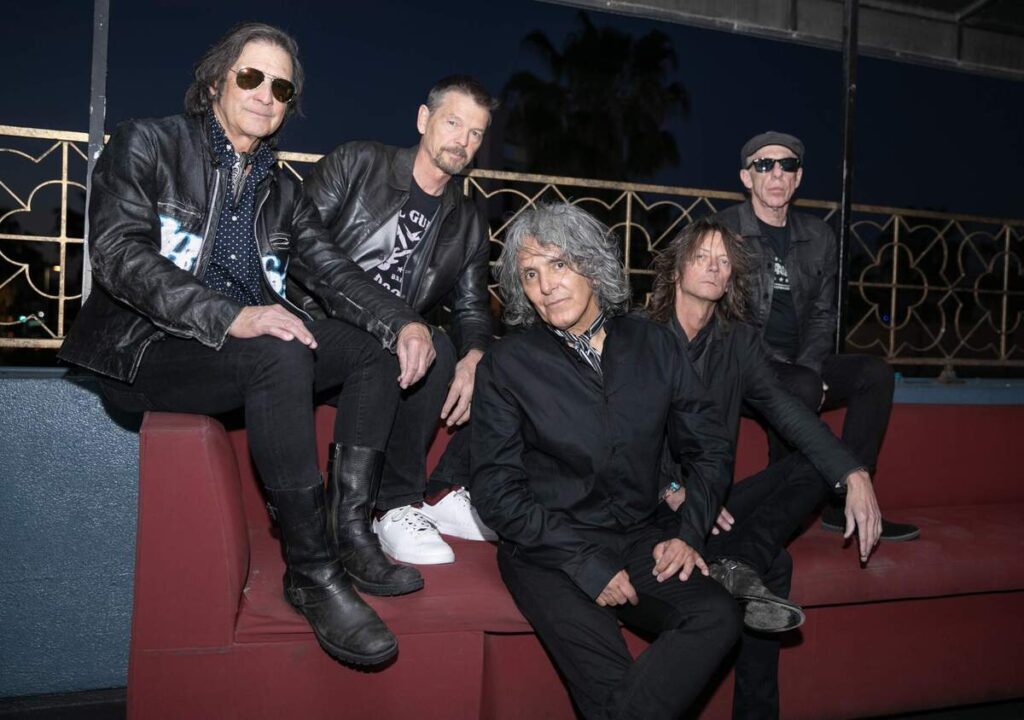
Let’s say some kid hears ‘Wild & Restless’ and it hits them like that first Kiss show hit Mike. What do you hope sticks with them? What’s the one thing Slamdinistas is trying to pass on?
Gabriel: That rock and roll is still alive—and we’re carrying the torch. This music is rebellion, emotion, connection. We want that kid, that person, to feel seen, to feel like we get what they’re going through.
Rock and roll got me through some dark times. If ‘Wild & Restless’ can make someone out there feel less alone, feel fired up, feel understood—then we’ve done our job.
Klemen Breznikar
Headline photo: Josh Withers
Slamdinistas Facebook / Instagram / Bandcamp
Rum Bar Record Facebook / Instagram / Bandcamp

